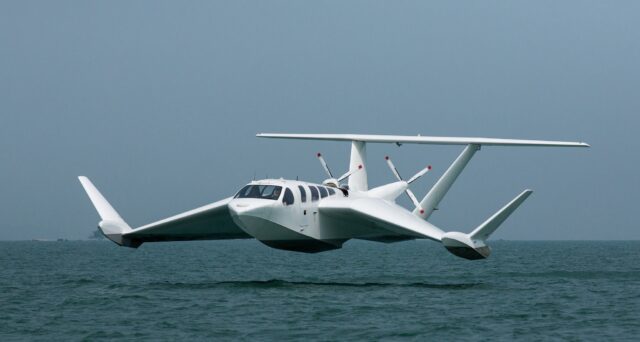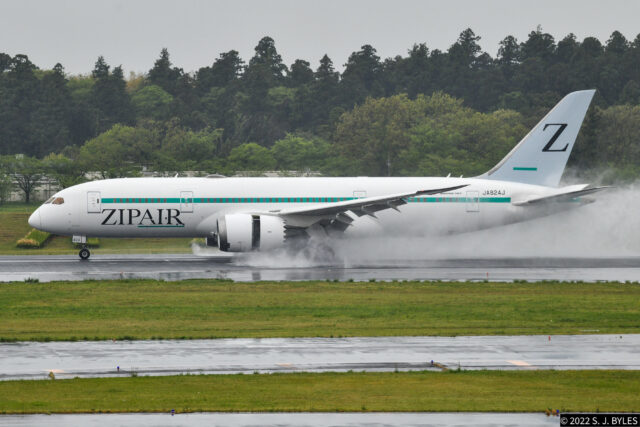Young people shun aviation careers over climate concerns, though the industry has a bright green future

October 21, 2025

As reported by The Tech Journal, the Royal Aeronautical Society’s recent People in Aerospace conference revealed that the aerospace/aviation sector struggles to attract the next generation of talent. Despite many technological advances underway, generating high demand for skills and specialisations, many young people perceive the industry as outdated, opaque, and insufficiently aligned with their climate-action mindset.

Speakers at the conference reported that many schoolchildren simply don’t see aerospace as a viable pathway, many teachers and parents lack awareness, industry outreach is fragmented, and employer-school coordination is weak.
“We need lots of people with varied skill sets… proficiency levels will increase around AI, data analytics, and robotics,” says John Watton, Technical Capability Director at GKN Aerospace and Chair of the People & Skills Working Group at the Aerospace Growth Partnership. “But it’s clear we do not have a pipeline to meet our national objectives,”
Many job opportunities in aviation are invisible to younger generations
Many young people associate aviation with careers as pilots or engineers, and may assume they aren’t suited for these career paths, while other opportunities in aviation in the sciences and technology may fall below the radar.
There are too few narratives linking aviation careers with solving big global challenges, such as climate change, clean tech, and sustainable mobility. As a result, students may gravitate towards sectors that are seen as more future-facing, such as software, renewables, and electric vehicles.
Of course, aviation has many opportunities in those fields, including software engineering and AI applications, research and development of alternative fuel sources, including sustainable aviation fuel, and electric or hybrid propulsion systems.

Speakers at the People in Aerospace conference describe the aerospace sector as having legacy training frameworks, male-dominated traditions, and hidden barriers (like swimming requirements for pilots, and cultural isolation in specific populations) that further reduce its appeal to a diverse young talent base.
These are the issues that aviation must tackle to attract the workforce it will need in future.
Aviation is where climate innovation is accelerating
Despite the perception problem, the aviation sector is undergoing a profound transformation in sustainability. From the EU’s ReFuelEU Aviation Regulation, mandating a 2% SAF blend in 2025 rising to 70% by 2050, to the UK’s own SAF Mandate targeting 10 % by 2030, airlines and fuel producers are building an entirely new clean-energy ecosystem.
At the same time, Europe’s Clean Aviation Joint Undertaking (CAJU) is funding hybrid-electric and hydrogen demonstrators with the goal of zero-emission regional aircraft by 2035.

Digitalisation is another sustainability lever. The International Energy Agency estimates AI-driven air-traffic management and predictive maintenance could cut sector-wide emissions by 10–15 % even before new propulsion systems mature.
Aviation is not standing still. It’s engineering a revolution in fuels, propulsion and data—the climate-tech innovation many young people say they want to work on.
Aviation careers narrative needs an urgent turnaround
Speakers at the Royal Aeronautical Society’s conference pointed to an urgent need to change the narrative around aviation careers to avoid a critical shortage of a skilled workforce.
Janine Hornsby, Chief Executive of the Air League, warned: “This is not a new problem. We’ve been talking about it for 20 years. If we don’t act now, the industry won’t be here.”
Royal Aeronautical Society Chief Executive David Edwards recalled: “Back in 1999, the Society published a paper predicting exactly the skills crisis we face today. It said this wasn’t a government problem to fix but a sector problem to resolve—and that’s still true.”
“This isn’t just a UK problem—every country is facing it. We need collaboration on a global scale to share best practices and ideas,” Jones said.
The UK’s Generation Aviation gains interest but key initiatives are still unrecognised
The UK Department for Transport’s Generation Aviation review warned of a gap between schools and industry, particularly among underrepresented groups.
- 69% of respondents to the surveys conducted on Generation Aviation in 2023 and 2024 thought that the aviation industry is entirely or primarily responsible for ensuring that future aviation skills are met.
- The 2024 survey found that awareness of the various initiatives to interest youth in career opportunities in the sector has improved over the last year. In March 2024, 71% of participants had heard of Generation Aviation (versus 57% in February 2023) and almost half (46%) knew what it was (versus 27% in February 2023).
Generation Aviation has increased the overall visibility of the aviation sector through industry events.
“Some participants were aware of certain elements of the programme through being part of the programme in some way, for example, knowing an Aviation Ambassador, contributing to specific research, sitting on the board at associations, or attending launch events,” the report’s authors state.

Awareness of specific schemes varies; recruitment events, educational partnerships, and future aviation skills research are still low. It was suggested that the programme be promoted in new spaces, such as government departments and local authorities.
The aviation industry is advancing climate innovation, including sustainable aviation fuel, hydrogen, electrification and AI-driven efficiency. If the industry can communicate its transformation convincingly, the same generation that sees it as part of the problem could become the one that solves it.
Featured image: British Airways
















